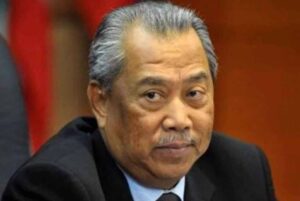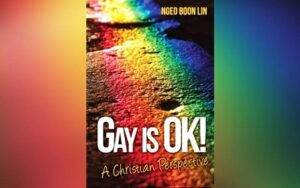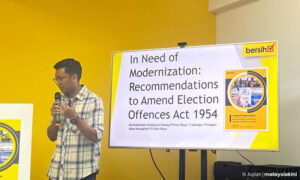By Ida Lim | Malay Mail
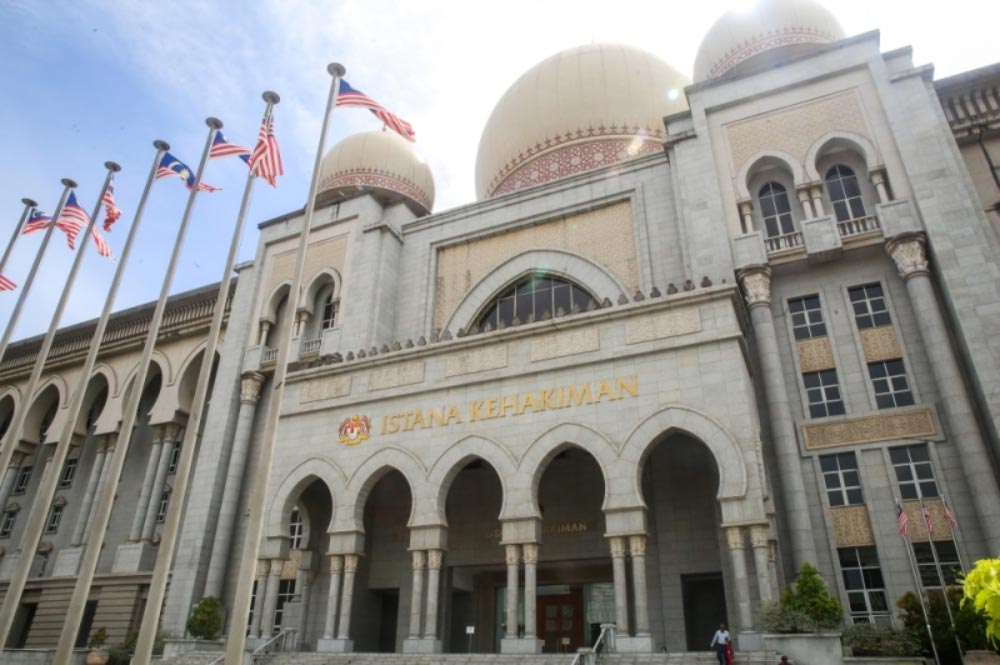
The book Gay is OK! A Christian Perspective is currently still banned in Malaysia, after the Court of Appeal’s 2-1 decision last year to uphold the home minister’s 2020 ban.
Here’s a quick summary by Malay Mail of what happened and why, based on the Court of Appeal’s majority and minority judgments released last month, and the High Court’s decision, as well as other documents. We will also have a quick look of what the book’s publisher and writer hope to pursue at the Federal Court.
What happened in this case
In September 2013, publisher Gerakbudaya Enterprise published and distributed Ngeo Boon Lin’s book Gay is OK! A Christian Perspective.
A Home Ministry assistant enforcement officer bought the book during a random inspection at Gerakbudaya’s bookstore in February 2020, with the ministry’s enforcement division then examining the book before submitting it to the home minister.
After reviewing the book’s contents, the home minister on November 17, 2020, ordered a total ban or absolute prohibition on the printing, publishing, sale, distribution or possession of the book throughout Malaysia, citing the reason that it is “likely to be prejudicial” to three things: public order, morality, and public interest. (Remember these three points below.)
This order — made via the home minister’s powers under section 7(1) of the Printing Presses and Publications Act 1984 (PPPA) — was published through a federal gazette on November 27, 2020.
Gerakbudaya and Ngeo discovered the book ban from online news reports on December 18, 2020, the same day of the Home Ministry’s secretary-general’s announcement of the ban.
After receiving no replies to their February 2, 2021 letter which they had asked the home minister to revoke the book ban order, Gerakbudaya and Ngeo filed their court challenge about two weeks later.
On February 17, 2021, Gerakbudaya via its sole proprietor Chong Ton Sin and Ngeo filed the lawsuit through a judicial review application to challenge the book ban, with the two respondents being the home minister and the Malaysian government.
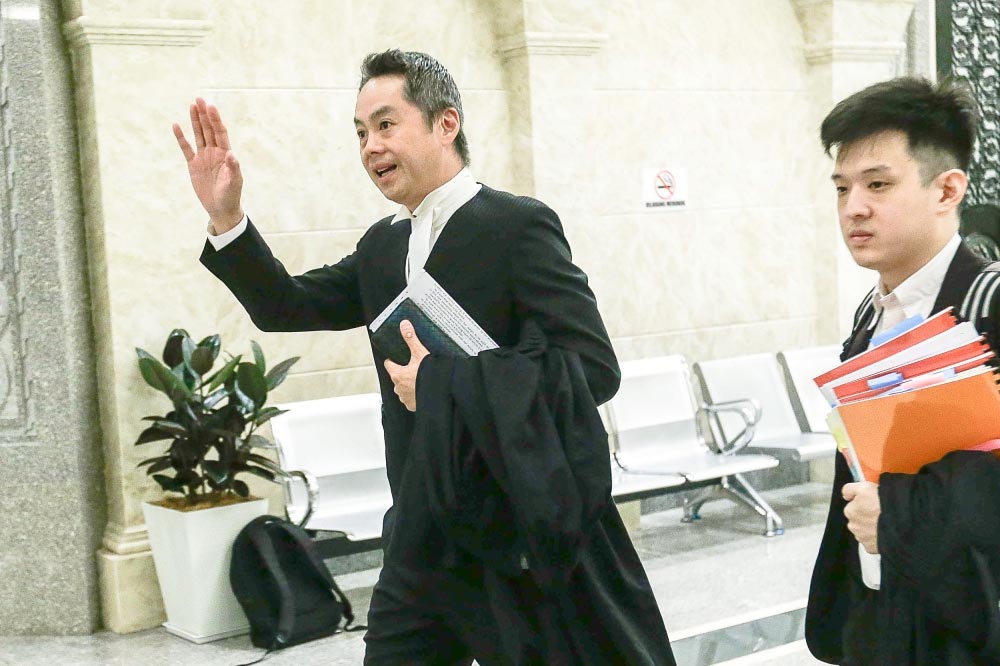
What the High Court said
On February 22, 2022, High Court judge Datuk Noorin Badaruddin ruled in favour of the publisher and writer of the book and quashed the home minister’s ban on the book.
The judge noted that the book contains two parts (a compilation of Ngeo’s articles published by a local news portal between 2010 and 2011; and 10 chapters by Ngeo on the Bible which is the Christians’ holy book, and homosexuality).
After having read the book, the High Court agreed with the publisher and Ngeo that the book in summary provides an alternative view from a Christian perspective on whether homosexuality must be opposed, noting that Ngeo’s view is that there is sufficient basis to counter the view that all Christians must oppose homosexuality.
In carrying out judicial review, the High Court highlighted that its role is only to see whether the home minister had followed or breached the law in deciding to ban the book, and that the court’s role or powers is not to override the minister’s decision or to evaluate whether the minister’s decision was correct.
The judge noted that the home minister had in an affidavit said he found the book’s contents as a whole and contextually to be promoting, defending, and encouraging homosexuality.
With the minister having exercised his section 7(1) powers to ban the book for being “likely to be prejudicial” to public order, instead of being actually “prejudicial” to public order, the court then examined whether the publishing of Ngeo’s book is “likely to be prejudicial” to public order.
While the home minister had in an affidavit said the public opposes homosexuality to the extent of organising mass protests and that Ngeo’s book could — if widely circulated — lead to demonstrations that could cause chaos, the court disagreed with such a view.
The High Court noted that Ngeo’s book had been in publication for seven years then since September 2013 without any evidence of related untoward incidents and that there was no evidence of any reports lodged by anyone to say the book is likely to pose a threat to public order, public morality or public interest.
The court said the public’s response to issues of homosexuality is irrelevant to Ngeo’s book, and that the past incidences referred to by the home minister are not connected to the book and were also not shown to have disrupted public safety and peace. The court also said there was no evidence to show how many copies of the book had been printed, published, or circulated before it was banned.
The High Court said the home minister had failed to justify the book ban, adding that the minister had failed to show evidence of “actual prejudice to public order” that had taken place more than seven years after the publishing of the book. “When no such evidence is adduced, it follows that the book was in the first place unlikely to be prejudicial to public order.”
As for whether the book is prejudicial to morality, the home minister in his affidavit said homosexuality was seen as immoral and not accepted in Malaysia and that this position was also recognised through laws such as the offence of unnatural sex.
Among other things, the High Court judge said the response by members of the society and the incidences as referred to by the minister “cannot be accepted to be representing an accepted view of either right or wrong by the right-thinking members of the society as a whole of the country in the recent times”.
The High Court said the home minister’s statement that homosexuality was not accepted by the entire society of Malaysia and that it is an offence in all religions in this country is “unsupported”, further saying the relevant views should have been confined to just Christianity since the book is only on homosexuality from that religion’s perspective.
The court said the home minister’s approach by dissecting significant excerpts of the book — said to be likely to be prejudicial to public order, morality and public interest — cannot be considered to be an objective assessment; adding that the publisher and author had argued that these passages cannot be considered to be significant as they were only 42 out of the book’s 226 pages and cannot be said to represent the entire book.
As different persons would have different subjective assessments of the book, the High Court said the publisher and the author must be given the right to be heard before the ban, especially when the book involves a religion which the home minister cannot be said to be an expert on.
The High Court said the publisher and Ngeo have the constitutional right to be heard before the book was banned, and said their right was violated as they were not given the right to be heard before the book ban. The court also viewed the book ban to be indefensible or something that cannot be defended.
While the home minister argued that he does not have to give any reasons when he exercised his absolute discretion under Section 7(1) to ban the book, the High Court said reasons must be given when freedom of expression or fundamental liberties are being stifled, as it would otherwise violate the principles of procedural fairness guaranteed under the Federal Constitution’s Article 8.
On March 17, 2022, the home minister and the government of Malaysia filed an appeal against the High Court’s decision to quash the book ban.
Why the majority at the Court of Appeal upheld the book ban
At the Court of Appeal, two judges in a three-member panel — chair Datuk Azizah Nawawi and Datuk Wong Kian Kheong — on September 25, 2023 decided to reverse the High Court’s quashing of the book ban. Wong’s 51-page written judgment was agreed to by Azizah.
In the judgment, Judge Wong said the courts can review the home minister’s book ban decision, and that Section 7(1) shows Parliament’s intention that the courts could review the minister’s exercise of “absolute discretion” under this law.
The judge said the test to be applied is whether a hypothetical “reasonable minister” who knows of all the relevant facts and circumstances as the actual minister would be satisfied that the book’s contents fall under any Section 7(1) reasons for banning — such as actually or likely prejudicing public order, morality or public interest; adding that this test would depend on the facts and contents of each publication and that past court decisions on other book bans cannot be binding precedents.
The Court of Appeal’s majority judgment then examined whether Ngeo’s book would fall under any of the home minister’s book ban’s three reasons (likely to be prejudicial to public order, morality and public interest).
Wong said the majority of the Court of Appeal’s panel had read the book’s title and its entire contents, adding that their objective assessment was that the book conveys the general message or impression that homosexuality is not objectionable and is permissible in Christianity.
The majority judgment said it was satisfied that the book’s general message is likely to prejudice morality, as “the moral values of Malaysian society do not condone” or accept homosexuality.
“In other words, homosexuality is considered immoral by Malaysian public,” the judgment said, also citing a High Court decision in a 1979 case that made observations regarding the act of sodomy.
The Court of Appeal’s majority decision also said a reasonable minister in the same position as the home minister would have been satisfied that the book’s general message is likely to prejudice public order.
It said this is because a homosexual act of intercourse between two males is criminalised and punishable under Malaysia’s Penal Code.
It said this is also because public tranquillity and even tempo of the community’s life would be disrupted if the book is not banned, as there would be public disaffection with the Malaysian authorities on why the book is allowed to be printed and sold in Malaysia when homosexuality is criminalised here and as such public disaffection would have the “potential to lead to public unrest, if not public riot”.
As for the third reason cited by the home minister, the majority court ruling agreed that the book’s general message is likely to prejudice public interest, due to the potential outcome of public disaffection and public unrest and as the book’s publication, sale, circulation or possession does not bring any benefit or advantage to the society as a whole.
Another reason given by the majority decision on why the book is likely to prejudice public interest was that the book’s general message to non-Christians in Malaysia is that homosexuality is permitted in Christianity, with the Court of Appeal judge highlighting that homosexuality is not allowed in Islam.
“Accordingly, the General Message/Impression (Book) does not promote a harmonious relationship between Christians and the Muslim majority in this country,” the majority judgment said.
In the decision to restore the book ban, the majority judgment said the High Court had made seven appealable errors, including an error in law by not applying the test of the “reasonable minister” to Ngeo’s book.
The Court of Appeal’s majority ruling also said the High Court had made a factual error when deciding that the home minister had “dissected significant excerpts” of the book.
The Court of Appeal majority decision said this was because the home minister had in an affidavit said he had read the entire book, and further said the home minister’s highlighting of passages in 42 of the 226 pages does not mean the other 184 pages negate or cancel out the effect of the existence of the likelihood to prejudice morality, public order and public interest.
Since the home minister’s ban of the Gay is OK! book was based on the “likelihood” of prejudice to morality, public order, public interest instead of “actual prejudice”, the Court of Appeal’s majority decision said the High Court made an error in considering the five following “irrelevant” matters when deciding to quash the book ban.
These five “irrelevant” matters are the fact that there was no untoward incident from the book’s publication, sale or possession for more than seven years since it was published in 2013; no evidence on how many copies had been published, sold, circulated or possessed by Malaysians; the government not having provided views from different religious and cultural groups of Malaysian society on the book; the expert opinion by a lecturer supporting Ngeo’s view that homosexuality was not necessarily prohibited in Christianity; and the government not having produced any expert’s view to rebut that lecturer’s opinion.
Even if these five matters were assumed to be relevant but were not considered by the home minister, the majority judgment said a “reasonable minister” in the position of the home minister would still be satisfied that Ngeo’s book’s general message has the potential to cause the likelihood to prejudice morality, public order and public interest.
As for the right to be heard, the Court of Appeal’s majority ruling said the PPPA’s Section 7(1) —- which was used to ban Ngeo’s book—does not provide the right to be heard first, as compared to other parts in the PPPA (Section 7(3) and Section 13B) which expressly provide a right to be heard.
The majority decision said this shows Parliament’s intention to exclude a right of hearing before the home minister makes the book ban decision, and that this meant the High Court had made an error when deciding that the publisher and Ngeo had a constitutional right to be heard before the minister issued the book ban.
The majority ruling said the High Court had made a factual error when deciding that the home minister did not provide any reason for the book ban. The majority ruling said the home minister’s gazetted November 17, 2020 book ban had provided the three grounds, and that the Home Ministry’s December 30, 2020 letter to Gerakbudaya had given the minister’s reasons for the ban.
The Court of Appeal’s majority ruling concluded it is unable to find that the home minister had committed any error of law regarding the book ban, or that the ban was irrational in the sense that no reasonable minister would have issued the ban, or that the ban was so disproportionate that the court should quash the ban, or that there was procedural impropriety when the home minister issued the book ban (as there is no right to be heard under Section 7(1)).
Why the dissenting judge said the book ban should be quashed
Court of Appeal judge Datuk Gunalan Muniandy agreed with the High Court’s decision to quash the book ban for reasons such as being denied the right to be heard before the ban, and said the High Court judge did not make legal or factual errors in her findings and ruling.
In his 14-page judgment that mostly reiterated or reaffirmed the High Court’s ruling, Gunalan said the High Court judge had looked at the book in its “proper context”.
He said this is in comparison to the home minister’s purported viewing of the book in isolation when “deciding to ban the book merely based on his subjective opinion as to what it sought to convey on the subject of homosexuality”.
Saying that each case must be decided on its facts, Gunalan said the High Court judge had correctly applied the objective test of whether a “reasonable minister” would objectively be satisfied that the book’s contents are likely prejudicial to public order, morality and public interest.
His view was that the High Court judge had correctly taken into account these five facts: that the book was published for seven years since 2013; that its contents were widely published in an online news portal from 2010 to 2011; that there was no evidence of any reports lodged that the book posed a threat to public order, morality or went against public interest; and that there was no evidence of any negative response from the public to the issue of homosexuality raised in the book as incidences referred to by the home minister were unrelated to the book and did not disrupt public safety and tranquillity; and that no evidence was given on how many copies of the book were printed and how widely it had been circulated to pose a threat to public order.
Gunalan said the High Court had made its findings — based on those five facts — that the home minister had failed to justify the book ban for being likely to prejudice public order as there was no evidence shown of “actual prejudice” after over seven years of the book’s publication.
He said the High Court judge had “correctly remarked” that the minister had failed to show evidence that the views among Malaysian society’s different religious bodies and its diverse cultural segments had been taken into consideration, further noting that the High Court had viewed the incidences referred by the minister at most “represent views of a limited group of persons or individuals of a particular religion which in no way represent current the view of the Malaysian society as a whole”.
Gunalan viewed the High Court as having correctly decided that the home minister had failed to justify the ban on the reasons that the book was likely to be prejudicial to public order, morality and public interest: as there was no evidence of such reasons; the home minister had failed to assess the book objectively; and the home minister had taken into account irrelevant considerations.
Noting that the High Court judge had said the home minister had “dissected significant excerpts” of the book said to be likely prejudicial to those three elements, Gunalan said the High Court was correct in saying that the minister’s approach was not an objective assessment as it did not represent the actual meaning of those paragraphs.
He said the High Court also viewed the home minister as having omitted the texts giving context to those paragraphs and passages when deciding the contents posed a threat to public order and morality.
As Gunalan was the only judge who agreed with the High Court, this means that the Court of Appeal’s majority ruling still applies and the home minister’s ban on the book currently remains valid.
On October 24, 2023, the publisher and author filed an application for leave to appeal at the Federal Court, listing 11 constitutional and legal questions that it wants the apex court to decide on — including how the home minister decides to use his powers to ban publications.
The 11 questions included questions such as whether the home minister must consider the right to freedom of speech and expression under the Federal Constitution’s Article 10(1)(a) before exercising his powers under Section 7(1) to ban a publication; and also whether the home minister must consider a particular religion’s experts’ advice before deciding to exercise his Section 7(1) power on a publication regarding a religious view.
Other questions include whether the right to be heard must be given before the home minister bans publications and whether the home minister has a duty to give reasons when banning a publication.
The Federal Court will only be deciding on these questions, if it decides to grant leave to the publisher and Ngeo to appeal the upholding of the book ban.
The Federal Court is scheduled to hear the application for leave to appeal on February 28, 2024.

